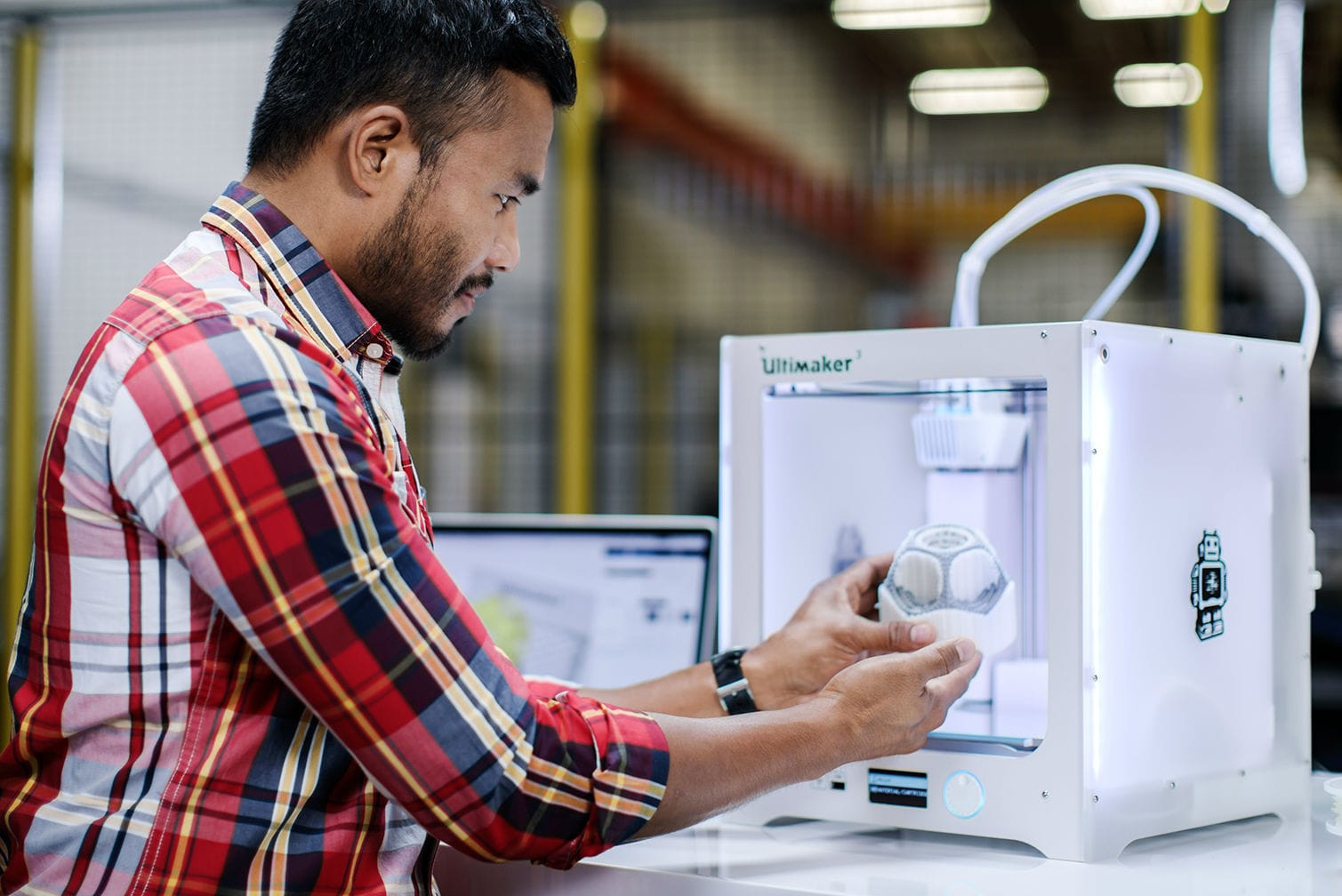
Long time open source supporter Ultimaker reported that it had filed for its very first patent.
This is a significant break from Ultimaker’s long-term strategy of supporting and using open source principles, where intellectual property is protected by creative commons licenses, for example, rather than formal patents. Needless to say, their community is a bit puzzled about this move and what it might mean.
Older 3D print enthusiasts may recognize this pattern, where it was most prominent in the case of MakerBot. In 2009, MakerBot was much like the early Ultimaker company, as they strongly supported open source principles and even absorbed DIY contributions into their product line.
However, that changed when MakerBot began to grow. To grow, they needed cash to fund expansion, sales, advertising and production. That cash came from investment, from proper investors seeking significant returns.
This switched their company philosophy and the company began shifting towards a closed-source operation. Patents started to appear. And to the woe of the community, many perceived some of these patents to envelop contributions from their community that had previously been given for no compensation. Many in the DIY market simply gave up on MakerBot at that point and shifted their attention to other vendors, such as Ultimaker, who continued with an open source strategy.
But now it appears that Ultimaker just might be on the beginning of the same path taken by MakerBot years earlier.
Or are they?
The first patent filed by Ultimaker is for “Active Bed Leveling”, a particular feature in the Ultimaker 3 models, and certainly is not comprehensive in any way to their machinery. It’s simply one feature.
Ultimaker is positioning this move as a defensive arrangement. They explain:
A defensive patent helps protect a company against patent infringement lawsuits. It also lets a company countersue if a competitor sues for infringement, or any other reason for that matter.
Having defensive patents in place is really important for companies like Ultimaker. After all, we’re focused on innovation, and to keep bringing exciting new products to market, we need to protect our IP portfolio. In short, these defensive patents help us keep doing what we do best: developing efficient, effective, useable 3D desktop printers and related products.
The reasoning is that the market they have embarked on pursuing – that is to say the professional market as opposed to the DIY hobby market – operates under different rules and a far more ruthless corporate culture. It’s a world where money rules and if a party can find an advantage, they may use it.
Meanwhile, those running a company such as Ultimaker become far more sensitive to business risks. A risk is a scenario where the company can be damaged, or even destroyed. One way this can happen is through a lawsuit related to intellectual property.
It doesn’t matter whether they invented the idea before these other parties as a result of the USA’s “America Invents Act” of 2011, which shifts the patent ownership from “First to Invent” to “First to File”. This concept is in fact the standard practice in most countries across the world today. Wikipedia explains:
In a first-to-file system, the right to the grant of a patent for a given invention lies with the first person to file a patent application for protection of that invention, regardless of the date of actual invention.
So even if Ultimaker invents some cool new features, they could be patented by other parties in the future and be sued in court for infringement – of their own invention. No, this makes no logical sense, but that is the world of trade we live in today, and thus it makes sense for Ultimaker to take this step.
Either that or they stop innovating and risk being sued. Or patent the innovations as they appear.
To their credit, Ultimaker explains they mean no ill will toward the community with this move:
However, this doesn’t mean that open source won’t apply anymore. We won’t be initiating patent lawsuits against anyone who uses our technology in good faith – for example, for personal use, research or small business development.
If you’re an individual user or contributor, you don’t need to worry, as these patents will not affect you. It’s simply our way of protecting ourselves in a highly competitive (and occasionally cut-throat) marketplace. By filing these patents, we’ll not only be helping Ultimaker to thrive, we’ll also be creating a secure environment for our partners, and other related businesses. Our team will be releasing more information about this in the future – watch this space!
That’s all good, but some in the community remain skeptical. In general, however, a quick scan of the comments on their post indicate a guarded position, with most remaining confident in their trust of Ultimaker’s intentions.
But that’s today. We have no idea how this will unfold. What we do know is that Ultimaker’s business strategy will take them further into the corporate world where such things happen routinely. They may feel pressure to take further steps, but that remains to be seen.
Via Ultimaker

